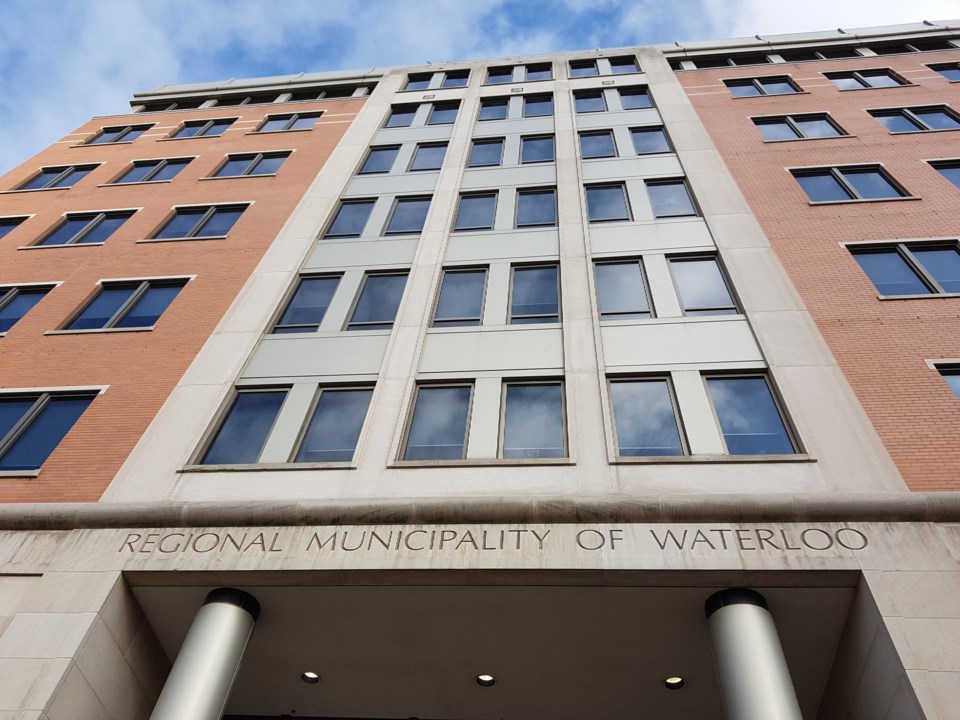Delaying projects in the 2025 capital budget could be the easiest way to reduce the region's preliminary 2025 draft budget and the tax hike that comes with it according to some regional councillors.
The region's first draft of next year's budget aims to raise $575.9 million from regional taxpayers, representing a 12 per cent increase over last year's tax levy requirement, excluding the police budget.
Regional council, however, wants to see that tax hike brought down to 8 per cent.
With proposed capital investments in roads, water services, public transit and housing set at $657 million next year, some councillors believe it's a good area to start looking for places to cut.
Kitchener Mayor Berry Vrbanovic is one of them and at today's first in-depth budget meeting said cuts to the capital budget shouldn't be off the table to help reduce the tax burden next year.
"People are really struggling and are looking for affordability and that may mean a temporary slowing down on some of our capital work," he said before asking for a list of reserve funds that might be tapped to address critical needs next year.
Property taxes fund about 56 per cent of the capital budget with development charges, grants, subsidies and reserves funding the rest.
Over the next 10 years the region plans to spend $6.8 billion on capital projects.
Vrbanovic said he was surprised to read about the $173 million communications centre proposed in the Waterloo Regional Police Service's capital budget and wants items like that on the table for discussion.
"Perhaps that's something that's going to have to wait an extra couple of years," he said. "That's a whole lot of money at a time that's challenging."
He later said he's not looking at cutting critical capital projects for roads, water lines and sewers, but instead wants to look at things like renovations to the region's administration building.
"Do we need to be doing them now?"
"These are the kinds of things we need to look at if we're committed collectively...to try and get this rate down."
Coun. Rob Deutschmann agreed, suggesting the region look to the City of Guelph for inspiration.
There more than $1.1 billion in projects were pushed ahead in the city's 10-year capital budget to get their 2025 tax hike down from 10 per cent to 4 per cent.
"The only way we're going to get down to 8 per cent is if we involve capital projects," he said. "We're not getting it through a cut in any social service programs or anything like that."
He asked if staff could return with a list of where to cut or delay capital projects, therefore reducing the need to contribute to reserves in the operating budget and reducing the levy.
Acting chief administrative officer Mathieu Goetzke said staff can, of course, return with a list showing any flexibility in the capital program but warned many of the region's 2025 projects already have signed construction contracts.
"The impact on next year is usually going to be very limited because of that," he said.
Coun. Doug Craig had the opposite opinion. He said his experience as mayor in Cambridge showed that when proper investments aren't made to infrastructure, it tends to come back to bite you.
"We ended up paying for it over the next 20 years," he said. "We have to be careful when we look at this."
He said the answer to reducing the tax impact isn't in the capital budget, but instead seeking better funding from other levels of government, namely the province.
Craig called Premiere Doug Ford's plan to hand out $200 cheques to every taxpayer in Ontario "a witch's brew," adding that $3 billion could be better used to help municipalities cope with all of these demands.
He wants to see local MPPs and federal MPs involved in the discussion so they can commit to more support for the region. "Infighting" at regional council to reduce the budget isn't working, he said.
In response to the province's fall economic statement following today's regional council meeting, Chair Karen Redman thanked the Ford government for its continued investment in housing-enabling infrastructure, improvements to transit infrastructure and supporting key economic sectors, including advanced manufacturing, technology, and life sciences.
"These investments are essential as we address the affordability and cost of living challenges faced by residents across Waterloo Region," she said.
"Regional council has begun budget deliberations with a strong focus on addressing these challenges and ensuring sustainable growth," she said. "As part of these discussions, we will continue to advocate for our fair share of provincial funding, particularly as Waterloo Region prepares to support a population of 1 million. This funding is critical to building the infrastructure and community services needed for a thriving, affordable future in our region.”
Today was the first of two detailed reviews of the Region of Waterloo's draft 2025 plan and budget.
The next in-depth review and first public input session will be held Nov. 6 followed by results of community engagement on Nov. 27 and final budget day Dec. 11.
